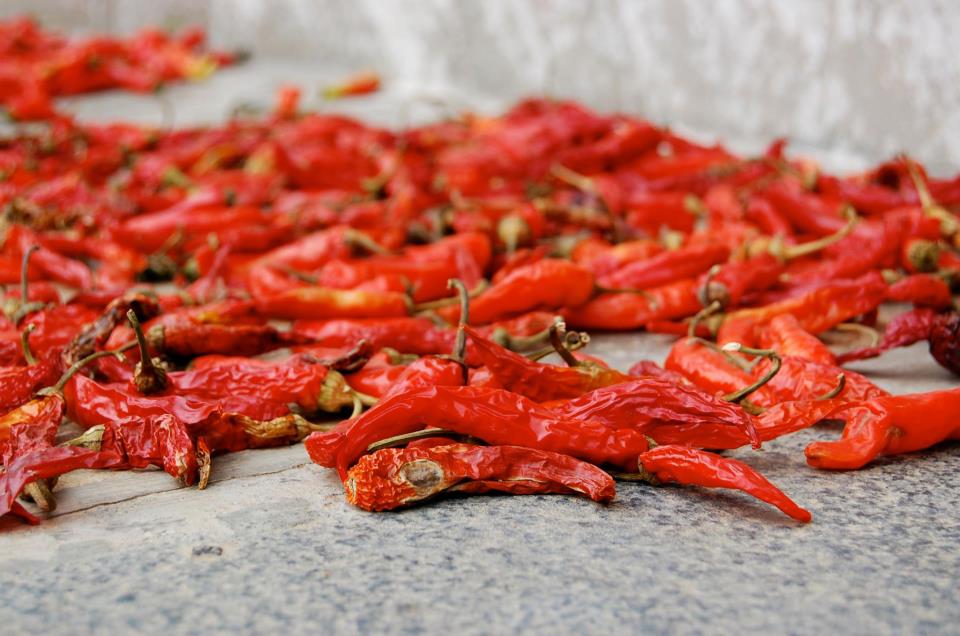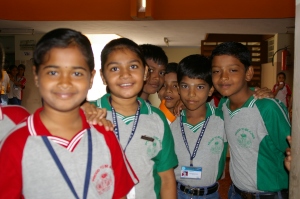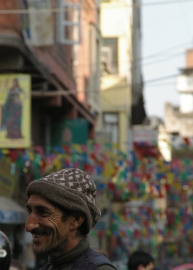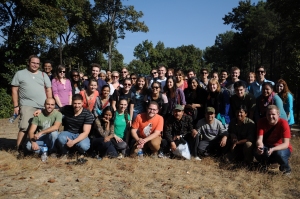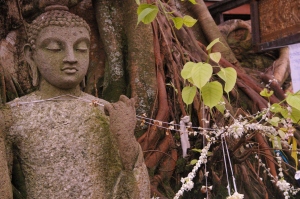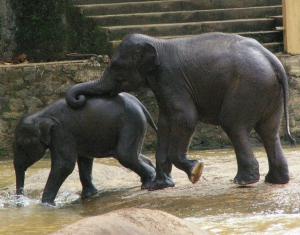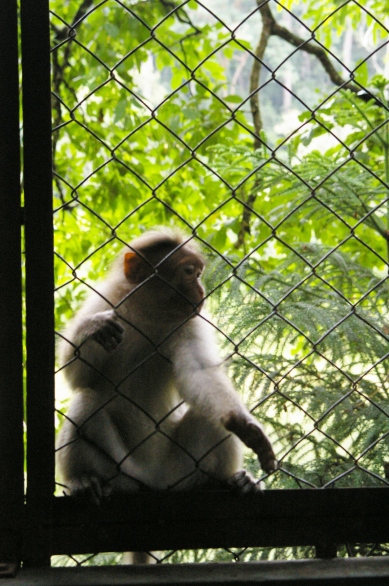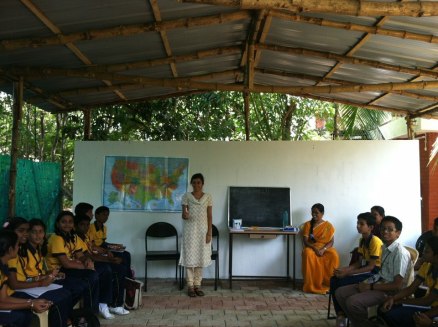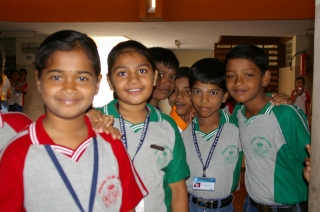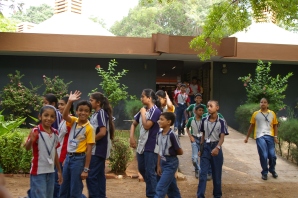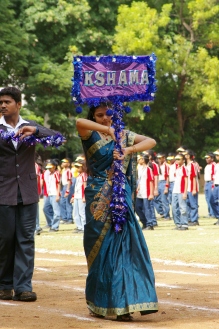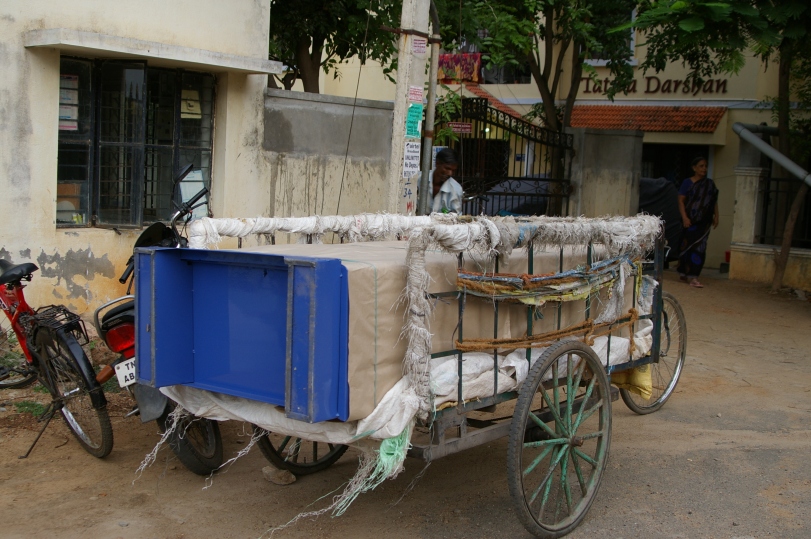The holiday season is upon us, and for the first time I won’t be celebrating it at home. It feels very weird… I guess this is what growing up is like!?! I’m not sure yet that I like it… But in an attempt to prevent myself from crying every day, or hopping on the next plane home, I’ve been reliving the celebrations and festivals I’ve experienced these past few months. I realized as I was looking through all of my pictures, that I have completely and utterly failed to write about all of these wonderful festivals I’ve experienced and celebrated with family and friends here. Here are a few snippets from the adventures I’ve been having (I promise I tried to keep them short!).
~
I stood patiently clad in a brand new sari, as my aunt draped necklaces around my neck, thrust bangles onto my wrists, tested out what felt like millions of earrings until she found the perfect matching pair, and finally carefully fastened flowers to my bun. I stole a glance in the mirror and almost burst out laughing: I don’t think I’d every worn as much jewelry—definitely not this much shiny jewelry—in my entire life. But as the acting “eldest daughter” in the house on this special festival day, I acquiesced to being dressed up like a doll. Seeing the smile on my chickamma’s (literally translated as “younger mother”—she is my dad’s younger brother’s, or chickappa’s, wife) face made it completely worth it to be dripping in shiny, multicolored stones for the day. Besides (the motto for the year), when in India…
The previous evening was spent visiting the tents of the many vendors selling hundreds of Gowri and Ganesha idols—from a few inches high to six or seven or eight feet tall. I walked around taking in all of the beautifully painted faces, scrutinizing the tiniest detail to find the most beautiful Gowri and the most handsome Ganesha for the Pooja: having never celebrated the festival in India before, I was thrilled by the simple act of picking out the idols while my younger cousin and uncle were laughing at my indecisiveness over painted clay idols we would be submersing in water two days later. But it was my first Gowri-Ganesha Habba in India and I wanted the idols to be perfect: I wanted Gowri’s face to be so beautiful that you couldn’t help but stare and be a little jealous, and I wanted Ganesha’s face to be just the perfect balance of handsome and peaceful.

My aunt had been up since four or five in the morning preparing all of the necessary items for the Pooja: the first day was the Gowri Pooja, celebrating the goddess Parvati, mother of Ganesha. On this day, the women would perform the pooja while the male of the household (or a priest if you went to a temple) would recite the appropriate mantras (chants). My cousin and I had spent the previous night decorating a stool and a chair for Gowri, making her a grand little throne to sit on while we performed Pooja. The floor was adorned with rangoli , plates full of colorful flowers, and various other pooja items such as milk, butter, sugar, holy water, fruits, and the Prasad (usually a special sweet that is made, and offered to the god, blessed by the priest/male of the family and then is eaten directly after the ceremony ends). My next two mornings were full of melodious mantras, colorful and fragrant flower garlands for the idols, kumkum (red powder), turmeric (yellow powder), and the soothing scent of sandal paste. At the end of the ceremony on the first morning, the women have a string tied to their right wrist: the string has fourteen knots in it and is died yellow by turmeric. Usually the father will tie the string on his wife’s and daughters’ wrists: in this case, my chickamma tied the string on my wrist for me. We say a little mantra while the string is being tied, asking the goddess to protect us, bless us, and give us good fortunes for the year to come.
The next morning Ganesha was the center of attention, and the males of the family conduct the ceremony. My cousin took the seat of honor, sitting on the right hand side of my uncle during the Pooja. We offer Ganesha five different types of leaves and flowers during the ceremony, and cook his favorite sweet Kadabu. Kadabu looks like a mini, bite sized calzone, but it is filled with shredded coconut, brown sugar, and sometimes nuts. After the ceremony, just as on the previous day, we sat down to a grand lunch prepared by my aunt, and served on banana leaves, that included three sweets, and four or five main dishes. Needless to say I developed a little round belly similar to that of Ganesha’s! That evening the festivities continued with visits to the neighbors’ houses where we would receive the signature chickpea dish of the festival, along with some kumkum, fruit, and bangles. My Uncle told me that as children, he along with my father and their two sisters would compete with each other to see which one of them could visit the most families. My Uncle bragged that they would each go to at least a hundred houses… I made it to four. I have quite a bit of work to do next year!
As night starts to fall on the second day of the festival we are faced with a unique challenge: we are not allowed to look at the moon, or else we will be cursed with bad luck. Of course on this night of all nights, the moon will appear in his most handsome and enticing form. As always, there is a story behind this practice. On the night of Ganesh Habbah one day, Ganesh was walking home after visiting a house and eating a great deal of scrumptious food. As he ambled down the street, he tripped and fell, and as a result of his rather cumbersome food baby, had quite a difficult time standing back up. The moon, being witness to this whole debacle, was laughing heartily. Ganesh was furious and cursed the moon saying that he would no longer be visible. India was thus shrouded in a blanket of darkness and the moon pleaded with Ganesh to let him shine once again. Ganesh agreed, but on the condition that on the night of his festival, no one would look at the moon or they would be cursed.

My cousin and I walked around the streets shielding our eyes and doing our best not to look up at the beautiful, clear, star studded sky. Unfortunately we were both tricked by the moon and couldn’t help but glance up at his dapper form in the sky that night. But not to worry, we recited a mantra when we returned home that evening and were thus promptly forgiven for our mistake. After another small ceremony, we took Ganesha and Gowri outside and submersed them in a bucket of water. The customary practice is to submerse the idols in a river or lake, but neither of these was available to us so we improvised. It was a blissful few days surrounded by the warmth of family, good food, and the gaiety of the holiday.
~
Boarding pass in hand, I watched as my bag slowly inched forward on the conveyer belt. I felt like a child who was flying for the first time: the unsettling excitement in the pit of my stomach at the prospect of getting on a plane to go somewhere after four months in Madurai was much more exciting than it should have been. Usually I walk into an airport and my stomach starts to churn at the thought of sitting in a claustrophobic tube thousands of feet up in the air, and I spend the rest of the time controlling my nausea. But the anticipation of the upcoming celebration for Durga Puja, the prospect of getting to see all of our fellow Fulbrighters, and the simple satisfaction of appeasing my new found travel bug with a trip to a far-away city was enough to make me forget how claustrophobic and sick I feel on planes. I was giddy with excitement; we might even say slap-happy.
After five and a half hours of flights and layovers we finally landed in Kolkata, the city infamous for pulling out all the stops when it comes to celebrating Goddess Durga’s female power. I was instantly struck by a certain level of efficiency I had recently lost in my life: our bags came out in less than fifteen minutes, we could take a bus from the airport straight to the street where our friends lived and there was even a metro in this city! A shove from someone behind me rudely brought me back to the reality of fighting my fellow travelers for a seat on the bus. The four of us girls created a sort of barricade as one of us watched for the bus to approach and the rest of us formed a line with our bodies and bags (I always thought Red Rover was just a silly game, but little did I know those skills would come in handy one day). As the bus pulled up, a surge of people unexpectedly swarmed it, forcing the bus driver to slam on his breaks to avoid from running people over. As we abandoned our post in front of the stop and chased the mob, the driver—quite visibly annoyed by the behavior of the crowd—cut his wheel in the opposite direction and stepped on his accelerator. We turned on our heels some of us yelling “NONO GO BACK GUYS HE’S DRIVING AWAY!” Luckily instead of leaving us without a ride, he simply drove away from the crowd and stopped a few feet forward. We grabbed our bags, used them as shields (and weapons), squared our shoulders, and somehow pushed our way to the front of the crowd. We stumbled onto the bus and after a few feet launched our bags and our bodies into four open seats, tripping and toppling over people and our own feet. We sat down, heaved a great sigh of relief, looked at each other and started laughing uncontrollably. It was a true test of cultural assimilation: we successfully muscled our way through a mob of Indians and beat them to the open seats on the bus. Ex-pats FTW!

An hour later we arrived at our friends’ apartment, and the festivities began. The entire week was a blur of Pandals (temporary temple structures that are built in honor of Goddess Durga. Each community builds a Pandal in a different theme every year. The scene on the inside of the Pandal however, highlighting Goddess Durga, is for the most part, the same in every community), as much western food and Khati rolls (a DELICIOUS Kolkata special that is kind of like a burrito in a Paratha but oh so much better) as we could get, quality catching up time, and of course a healthy dose of drama (as is to be expected when you cram 14 very boisterous people into two 2-bedroom apartments). I have never, in all of my life, ever seen as many people as I saw occupying the streets during those six days: I don’t think I would be exaggerating too much if I said that the entire population of 14.1 million people was out on the streets at night, the most auspicious time to see the Pandals.

By the final day of the festival we had exhausted our Pandal hopping desires and most of us set out to have a lazy brunch before finding our way to the shore of the Ganges where they would be submersing the clay statues of Durga. After brunch we hopped in the cabs that infest the streets of Kolkata, asking the drivers to take us to the shore of the Ganges where there would be the most people submersing idols. As we got out of the cabs a few minutes later, we saw a huge line of local media and a massive crowd of people standing near the shore where there was a large boat, a woman dancing, a man talking on a microphone, and two men playing the drums. We walked closer to the celebration, instantly energized by the excitement of the crowd. Suddenly we realized that two of our friends who had left earlier that morning to meet their Principal were on the boat. We started jumping up and down and waving and yelling like mad people. The woman dancing on the boat, saw us, thought we were waving at her, grabbed the microphone from the man speaking and said “You foreigners, please come on the boat!” We wasted no time in hightailing it to the edge of the shore, where we tore of our sandals, rolled up our pants, and waded across the Holy Ganges River to a very shaky ladder that got us onto the boat. At this point, our two friends had seen us and we quickly learned that the boat belonged to the Principal of one of our friend’s School, and the woman dancing was a Bengali Movie Star. The next hour was like a dream: we were asked/told/forced to dance, our faces were covered in Red Vermilion, we were taped playing the drums, given the microphone to speak to the crowd, and asked to do interviews. We watched—our toes hanging off the edge of the boat—as they submersed idol after idol into the sacred waters of the Ganges. Later that night, we became local stars when they aired clips of us celebrating Durga Pooja on local television!

~
Looking back through my blog posts I realized that I have failed to introduce the people who form my community here in Madurai, so I thought I would take the opportunity to do so now. First and foremost there are the four other girls with whom I am lucky enough to be teaching English with in Madurai this year:
Kelly (22) is originally from the Maryland/DC area and graduated from University of Maryland in May with a major in Kinesiology. She was in India last summer for five weeks on a Public Health trip in a village of Himachal Pradesh where they worked on a project mapping TB. She is an avid runner, always has the answers to our problems and never fails to raise our spirits when we’re feeling down.
Erin (22) is a Wisconsin gall. Originally from Milwaukee she graduated from the University of Wisconsin in May with a major in Cultures and Languages of Asia and she is our resident Hindi and French speaker. She studied abroad in Pune, Maharashtra the summer of 2010 where she was teaching English. She is always reading the best novels, has trained as a yoga instructor, and loves to cook and travel.
Nicole (24) graduated from Knox College with a major in Poetry. She is originally from Chicago and has never travelled to India before. She is definitely the most quirky individual of our group, is extremely clever and innovative, always keeping things interesting, and is an adventurer at heart.
Sarah (22) is from Minneapolis and graduated from the University of Minnesota in December. Until June she was working at a café as a barista/baker. She studied abroad in Paris and thus also speaks French fluently. Sarah describes herself as an avid yogi and is our expert on homeopathic remedies.

These four ladies make up the core of my community here, and I like to think we function as our own little family. In addition we have met five students studying Tamil language/literature here for a year, two of whom are undergrads and three of whom are PhD students from various universities. There is also an Israeli-American family that lives in our neighborhood: the husband is the director of a college study abroad program called the SITA program. He has three children—a daughter (third grade) and two sons (1st grade and Pre-K respectively) who are absolutely adorable (the first grader is my school-bus buddy and best friend at school). His wife is absolutely fearless and makes the BEST bread I have ever eaten—and she does it in a toaster oven! In the apartment building right next to my school lives a very unique and lovely couple our age: Paula and Steele. Paula just graduated from the University of Wisconsin and is working with various NGOs which deal with women’s rights issues. Steele is a business student who graduated from college two years ago and has started his own business called My Rain India: he is working with an NGO to create an effective drip irrigation system for farmers to use in the surrounding villages of Madurai. Finally, about three hours away in a little mountain town called Kodaikanal lives an alumn of the Wisconsin Study Abroad program in Madurai. After his year in the program, he fell in love with India and decided to move here: he owns a beautiful ashram up in the mountains where he runs workshops throughout the year.
This hodge-podge group of wonderful people make-up my family, friends and community in Madurai. They are what make this year so special: trying to lesson plan in Café Coffee Day (the one and only café in this city), or sharing delicious traditional food at a hole in the wall restaurant (always the best places to eat), or chatting in our dark living rooms with candles burning for light during a power outage just wouldn’t have that magic touch without them. This week we are attempting to recreate a little piece of each of our family Thanksgiving celebrations to share with each other: given our minimal resources and lack of certain key ingredients and/or appliances, our menu is definitely unique and eclectic. But I can’t think of a better way to celebrate Thanksgiving.
In the spirit of Turkey Day I have to end this post with a little bit of cheese (sorry!)—I am so lucky and thankful to be able to share this year with the amazing new friends I have made here in Madurai, and to have the continuing support and love of my family and friends at home. I know I’ve said this to so many of you before, but I mean it more and more every time I say it: without all of your support I would never survive this year. Happy Thanksgiving!!
